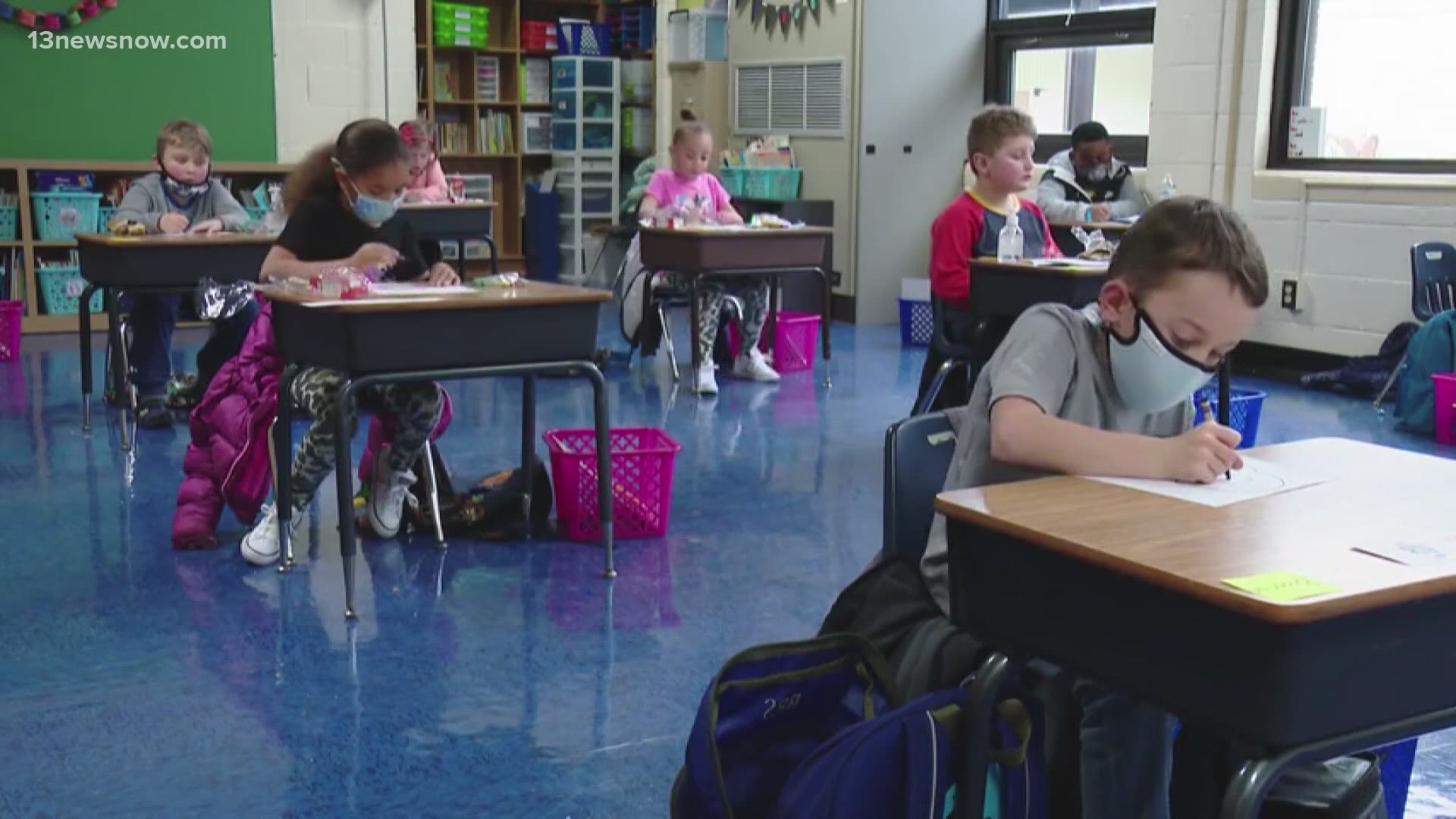NORFOLK, Va. — More and more parents are holding their children back one extra year before sending them into kindergarten after the pandemic caused some families to re-think education plans.
The UVA education research study found the average kindergarten admission rate dropped 13-percent. However, the study shows Hampton Roads schools saw some of the worst numbers.
University of Virginia education researcher, Anna Shapiro's latest co-study found parents were more hesitant to send their kids off to kindergarten this year.
It's called "redshirting" or labeling children who start later as "red shirt students." It's when a parent decides to wait just one more year to send their child to school for the first time. It's a trend with its ups and downs -- but recently it's spiking this year most likely due to the pandemic.
Here are some of the numbers in Hampton Roads:
- Virginia Beach dropped 18%
- Chesapeake dropped 14%
- Norfolk dropped 16%
- York County dropped 24%
Gloucester County and Poquoson came out as some of the regions with the lowest admission drops.
"I wasn't necessarily surprised, but I think a 13% drop is quite large and will introduce a real challenge," said Shapiro.
Shapiro said while they don't have exact data yet on how this could impact the schools and families, they presume based on previous studies that schools and parents need to be ready for a shift in education.
"That is probably going to have a really big impact on their readiness for kindergarten and what kind of differentiations teachers are going to need to do in classrooms, so they ensure that everybody is on the same trajectory and is ready to learn in 1st, 2nd, etc.," explained Shapiro.
Shapiro said her team believes the main reason is because parents needed their children in childcare, instead of learning virtually from home. They say it could also be simply parents wanted to start their kids' education in-person for developmental reasons.
The next part of UVA's study is looking into how these kindergarten admission rates impacted communities disproportionately.
They said it will take some time to see the real impacts of this difference in children's education.

